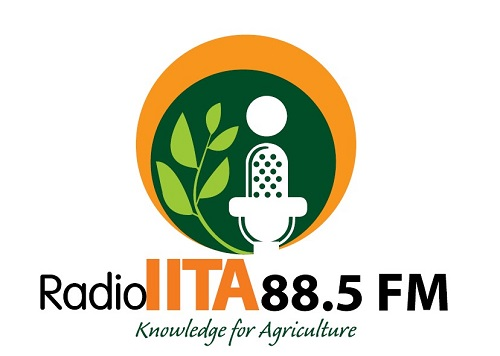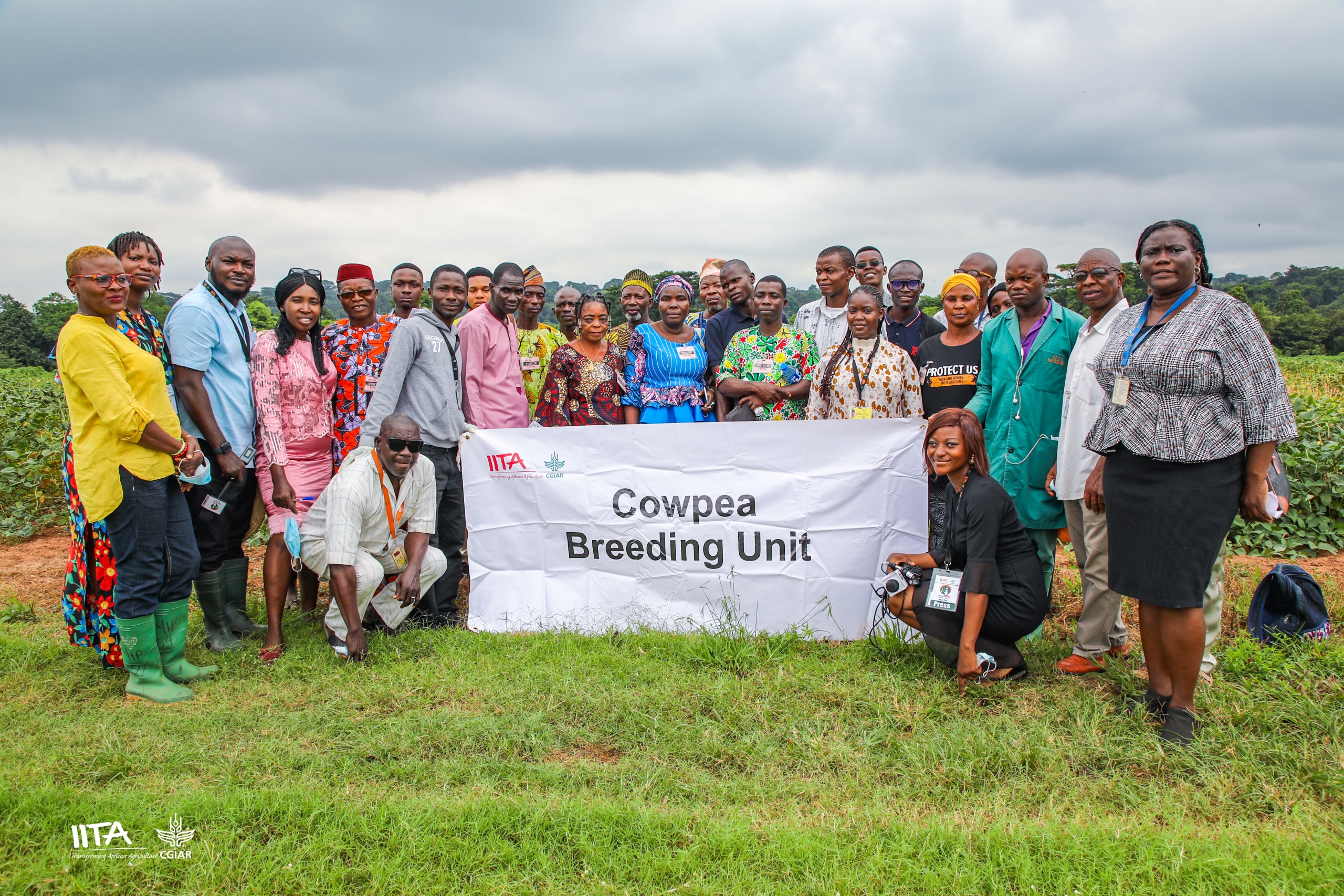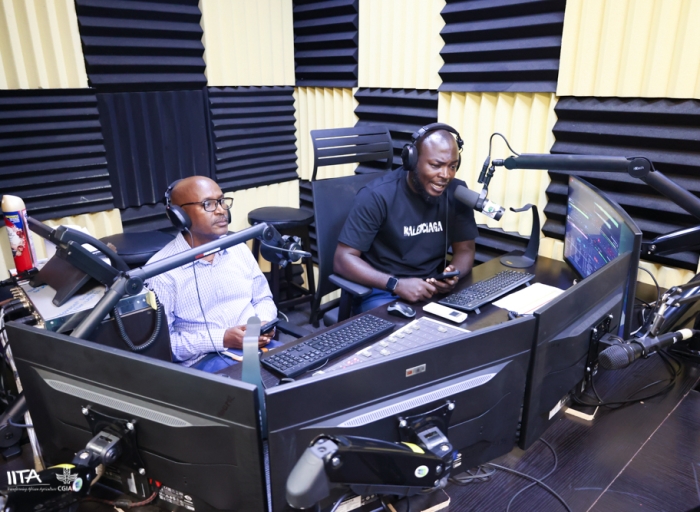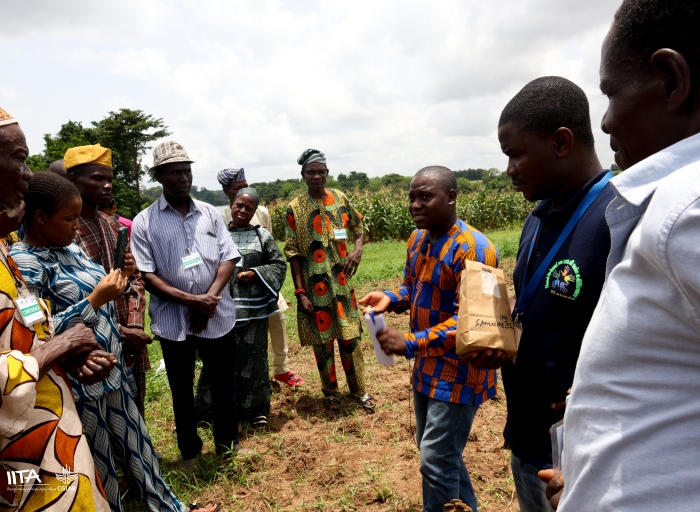Nigeria, the world’s largest producer and consumer of cowpeas, faces a paradox: despite its leading position, over 40 percent of cowpeas consumed in the country are imported. This is largely due to the crop’s vulnerability to infestations from insects such as pod borers, whiteflies, and various seed-sucking bugs. In response to these challenges, RadioIITA recently conducted an outreach program to empower cowpea farmers with the knowledge and techniques to improve yields and reduce reliance on chemical pesticides.
The latest edition of the outreach program, which focused on cowpea farming, attracted 42 farmers who participated physically and virtually. The program was designed to expose farmers to effective methods for increasing crop yield while tackling pests and diseases.
Bosede Popoola, International Manager of the IITA Cowpea Breeding Program, led the initiative by emphasizing the importance of evaluating soil type and fertility and selecting appropriate cowpea varieties for local farms. She then guided the farmers through simple management practices that could enhance their income and improve their communities’ nutritional status.
“Cowpea does not tolerate excessively wet conditions or waterlogged soil,” Popoola explained, stressing the importance of proper field conditions for successful cultivation.
She also provided comprehensive guidelines on effective weed management, including manual and chemical methods, and a detailed spraying schedule to control pests during critical stages of cowpea growth. Farmers were taught the importance of timely spraying to manage pests like Maruca and other insect threats, ensuring healthier crops and higher productivity.
In addition, the training covered post-harvest practices, such as proper sun-drying of pods, threshing, and cleaning seeds for storage, which are crucial for maintaining the quality of the harvested cowpeas.
At the demonstration plot, Popoola and her team members also highlighted the risks associated with the improper use of chemical insecticides. They noted that many farmers do not fully understand product formulations or instructions and often lack protective clothing during application, which poses serious health risks.
To foster quality research and product advancement, the participants were equally invited to select their preferred cowpea varieties based on evaluation metrics taught at the training.
One of the participants, Yisa Oyelami, expressed his gratitude to RadioIITA, saying, “This training has equipped him with the right knowledge needed to thrive in an ever-changing agricultural landscape. I now have the tools to improve my farming practices and ensure better yields.”
RadioIITA, with these trainings, is striving to create strong linkages between farmers and researchers for agricultural developments.
Watch training video: https://www.youtube.com/watch?v=6jQRnXcyTLg
Contributed by Anu Oyeleye



